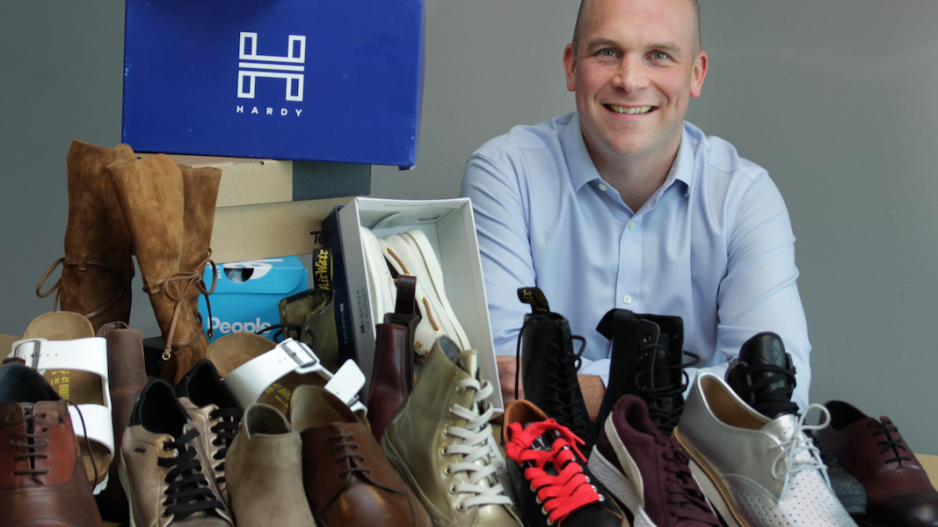Vancouver-based online shoe-seller Shoes.com’s foray into opening bricks-and-mortar stores reveals how the age-old retail strategy of pop-up shops is enjoying a renaissance in the new omni-channel world.
Shoes.com’s stores, which are set to open next week in Toronto and in September on Burrard Street in Vancouver, will be permanent, but their financial viability relies in part on revenue from shoe brands that want to operate pop-up shops within the stores.
The company already has agreements with Clarks, On, Guess and a collection of brands from LEF Industries. Those brands will pay a fee to temporarily take over part of Shoes.com’s stores.
Shoes.com’s vice-president of marketing and retail, Geoff Henshaw, told Business in Vancouver that he is negotiating with one brand to take over an entire store for a set period of time.
“The maximum time period that we’ve put out is two months [for the pop-up stores,]” he said.
“We’ll probably look at two weeks as a minimum time because there’s a lot of product and a lot of material that we would need to change within the store in order to make it happen.”
Department stores have long dabbled in what industry insiders call “concessions,” where major brands permanently sublease parts of their stores.
What’s innovative about Shoes.com allowing brands to take over parts of its stores is that the pop-ups are temporary and its stores are much smaller than department stores. The Vancouver store is set to be about 2,000 square feet; the one in Toronto will be about 3,000.
“Everyone in bricks-and-mortar is trying to generate traffic and be interesting and create a customer experience,” said DIG360 retail analyst Raymond Shoolman, who likes Shoes.com’s strategy.
“You can’t just open your door and hope for the best, like you could 10 or 20 years ago.”
Shoolman believes Shoes.com is simply extending the traditional “trunk shows” retail strategy, which dates back generations. Travelling salespeople carried goods in the trunks of their vehicles and sometimes visited a retail location and set up a temporary display.
Some small retailers still rely on that revenue stream and are increasingly partnering with online retailers that want to dip their feet in the bricks-and-mortar world.
Nicole Bridger, for example, has hatched partnerships with several e-commerce ventures where the online retailer pays her to have a pop-up store within Bridger’s ethical and sustainable women’s fashions boutique in Gastown.
Edmonton-based online shoe-seller Poppy Barley operated a three-day pop-up store within Bridger’s 1,400-square-foot location in June while other pop-up stores that have operated for up to three months include retailers Eco Diva (makeup) and Azura Bay (swimwear and lingerie).
Bridger launched the business model where she relied on pop-up-store revenue after she closed a money-losing factory and started sub-contracting production of her blouses, skirts, dresses and other women’s wear.
Losses at the factory meant that Bridger was cash-strapped, could not produce as much as she wanted and consequently had excess space in her store.
“It’s worked out great,” she told BIV.
“Even if my store could be full of my own product, I’d still like to continue doing this because it’s been great for the community – getting to know these other young entrepreneurs who feel the same as I do about ethical and sustainable products.” •




